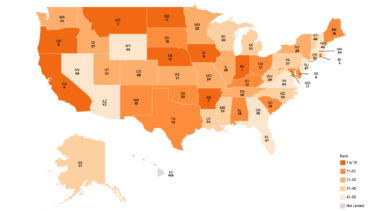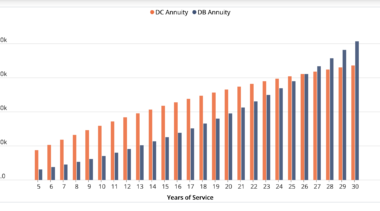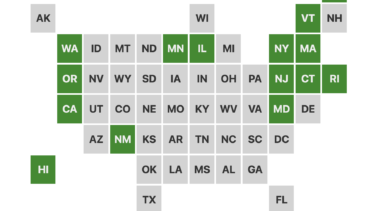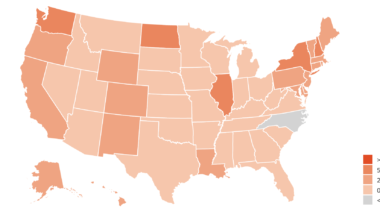Jordan Campbell is a quantitative analyst at Reason Foundation.
Prior to joining Reason, Campbell worked at a marketing analytics firm building econometric models. Before starting his analytics career, he was a policy and research assistant at the Charles Koch Institute.
Campbell’s work has been published by The Press-Enterprise and the Platte Institute. His quantitative work on educational policy has been cited by The Thomas B. Fordham Institute.
Recently, Campbell appeared on a panel entitled “Don’t Fence Me In: Texans Crossing School Boundaries” sponsored by the Texas Public Policy Foundation.
Campbell received his bachelor’s degree from Portland State University and a master’s degree in quantitative economics from California Lutheran University.
He lives with his wife in Los Angeles, California.
-
Four takeaways from the U.S. Census Bureau’s latest school finance data
With federal data from the 2022 school year now available, policymakers can better grasp how the COVID-19 pandemic affected public school budgets.
-
For most workers, the value of Alaska’s defined contribution plan surpasses that of a traditional pension
The following tool created by the Pension Integrity Project displays the year-by-year accrual of retirement benefits for a wide variety of Alaska workers in different fields and starting at different ages.
-
Public education at a crossroads: A comprehensive look at K-12 resources and outcomes
Examining key education spending, enrollment, staffing, and student performance data over the past two decades in all 50 states.
-
Public pension systems continue to support ESG proposals
The public should be able to view proxy votes well before they are cast and access annual reports showing all of a pension plan’s proxy votes.
-
Calls for public pension systems to divest from energy sector are shortsighted
Public pension systems have a fiduciary duty to make investment decisions in the best financial interest of their members.
-
Homeschooling is on the rise, even as the pandemic recedes
As of May 2023, 85% of students are enrolled in public schools, 9.6% attend private schools, and 5.4% are homeschooled.
-
Vanguard’s shift away from ESG fits with its focus on low fees
“Our research indicates that ESG investing does not have any advantage over broad-based investing.”
-
Comparing Alaska’s defined benefit and defined contribution retirement plans
Most of Alaska’s public employees would be better served in the existing defined contribution plan.
-
Examining day-to-day crypto volatility and why it’s important
Bitcoin, Ethereum, and other cryptocurrencies frequently exhibit daily price drops during bull markets and increases during bear markets far in excess of traditional assets.
-
The effect of menthol bans on cigarette sales: Evidence from Massachusetts
Massachusetts' flavored tobacco ban primarily sent buyers to other states and illicit markets.
-
The 2022 fiscal year investment results for state pension plans
Overall, the median investment return result for state pension systems in 2022 is -5.2%.
-
Public education funding without boundaries: How to get K-12 dollars to follow open enrollment students
How to ensure state and local education funds flow seamlessly across district boundaries.
-
The mechanics of ESG-driven divestment, engagement and proxy voting
It is inappropriate for public pension systems to engage in political, non-pecuniary investment activities, regardless of whether it occurs through divestment or shareholder proposals.
-
Scrutinizing high ESG fees, greenwashing and the politicization of public pension funds
ESG-focused investing is drawing criticism, even from some supporters, due to overstated claims and high fees.
-
Debtor Nation
The national debt is over $30 trillion. The federal government ran an annual budget deficit in 52 of the last 57 years.
-
The public pension systems signing on to politicized ESG investment efforts
State and local public pension systems that have signed on to the Ceres Investor Network on Climate Risk and Sustainability and Climate Action 100+.
-
K-12 Education Spending Spotlight: An in-depth look at school finance data and trends
Reason Foundation’s new K-12 Education Spending Spotlight provides critical insight into key school finance trends across the country.


















